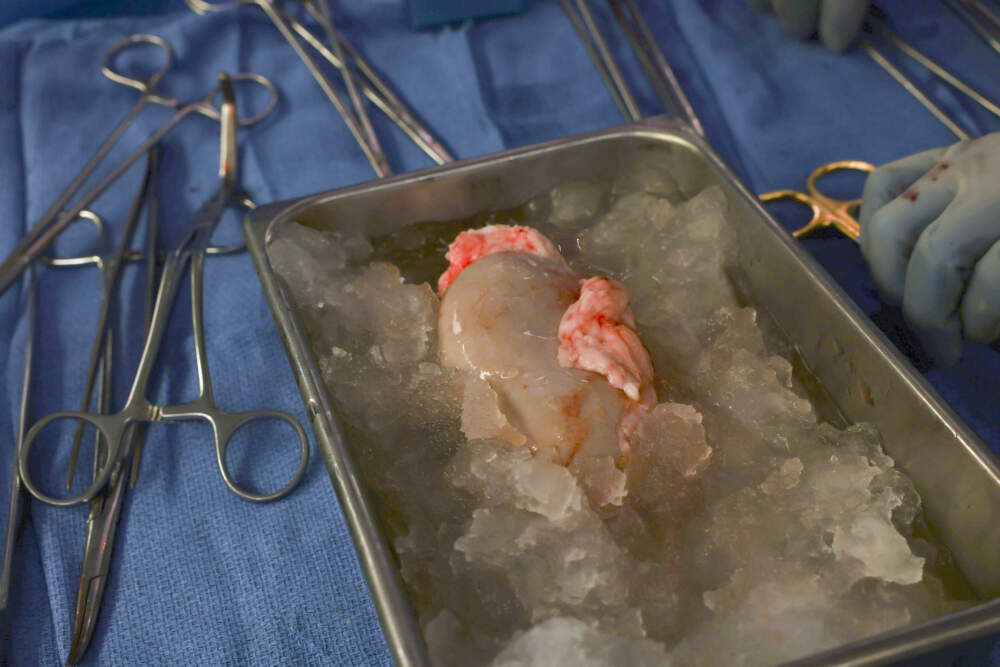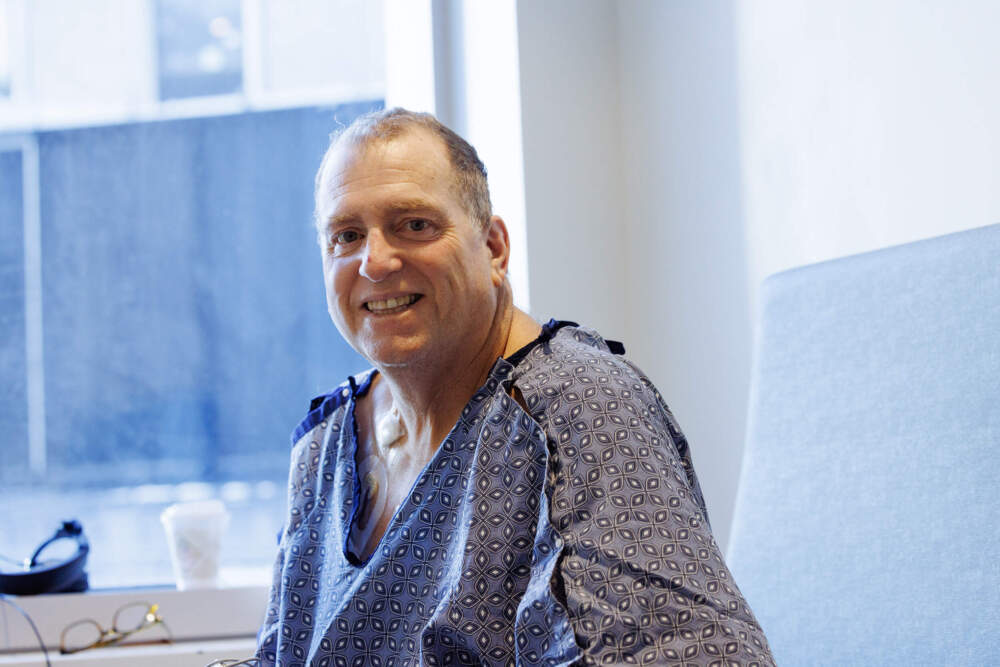Advertisement
New Hampshire man gets pig kidney transplant from Mass General Hospital

For just the second time, surgeons at Massachusetts General Hospital have transplanted a genetically modified kidney from a pig into a human patient.
The patient, 66-year-old Tim Andrews of Concord, N.H., was in surgery for two and a half hours on Jan. 25. He walked out of the hospital, holding his wife’s hand, a week later.
“As soon as I woke up after the surgery, the cloud of dialysis disappeared. I felt re-energized and revitalized. It was a miracle,” Andrews said in a statement provided by the hospital. He was scheduled to speak at a press conference Friday, but he had irregular blood sugar readings and was not feeling well enough to attend, according to his doctors.

Andrews is the fourth living person in the world to receive a pig kidney, and just one of two people currently living with one.
His operation represents another advance for the field of xenotransplantation, in which organs from one species are transplanted into another. Doctors and scientists are hopeful that pig organs, with genetic modifications, will help ease the organ shortage for patients who are struggling with dialysis treatment and face long waits for human donor organs. Many patients die awaiting transplant.
“Xenotransplantation represents a turning point,” said Dr. Leonardo Riella, medical director for kidney transplantation at Mass General. “By eliminating the organ shortage as a barrier to transplantation, it offers a solution far superior to dialysis,” which can be fatiguing and increase risk of heart problems.
Pigs’ kidneys are similar in size to human kidneys and function in much the same way. Scientists used gene editing technology to make 69 changes to the pig kidney’s DNA, to reduce the risk of infection and make it more compatible with humans.
Advertisement
“We’re witnessing a future that many thought was far in the distance,” said Mike Curtis, chief executive of eGenesis, the Cambridge-based company that provided the genetically-edited kidney. He became emotional naming the patients who have participated in these experimental surgeries so far, including those who ultimately did not survive.
In March 2024, Mass General performed the first-ever transplant of a pig kidney into a living human. The patient, 62-year-old Richard Slayman of Weymouth, recovered from surgery and returned home. But 52 days later, Slayman died. Surgeons said his death was the result of sudden complications of heart disease, not rejection of the transplanted kidney.

Asked about the differences between the two cases, Riella said Slayman was in worse health and had cardiovascular complications going into transplant surgery, while Andrews was relatively healthier and had spent less time on dialysis before his operation.
“So these, we believe, are the ideal patients to go through this transplant because they haven't suffered all the consequences that dialysis unfortunately has, particularly on the cardiovascular system,” Riella said. “Going forward, this is probably going to be the population that we're going to be focusing [on].”
Andrews has end-stage kidney disease and had been on dialysis for about two years before his transplant surgery. Dialysis left him frail, doctors said. He faced an especially long wait for a human donor kidney — an estimated 5 to 10 years — because of his blood type.
In a video published by Mass General, Andrews said when he learned of the option to receive a pig kidney, he was “100% in” — not just for himself, but to help advance treatments for others suffering with kidney disease. Andrews, who also has diabetes, exercised and worked to lose weight ahead of his surgery.
Dr. Tatsuo Kawai, the lead transplant surgeon, said Andrews’ operation went smoothly, and the transplanted kidney started making urine right away. It’s unclear how long the pig kidney will last. The hope, based on experiments in monkeys, is at least two years.

Work in xenotransplantation has been moving quickly, and progress has been mixed. Four patients died after receiving hearts or kidneys from pigs. But an Alabama woman, Towana Looney, is doing well more than two months after her pig kidney transplant at NYU Langone Health in November.
"I've been feeling great," Looney recently told NPR. "A lot of energy.”
Some people are worried about the ethics of taking organs from pigs, or the potential for animal viruses to spread to humans through transplantation.
But that hasn’t stopped xenotransplantation work at hospitals or private companies. Mass General surgeons said they’re planning two more kidney xenotransplants this year, in July and October, and will monitor all three patients as part of a study approved late last year by the U.S. Food and Drug Administration.
Just this week, a Maryland company called United Therapeutics won FDA approval to study gene-edited pig kidney transplants in six patients, potentially expanding to 50 patients. The transplants are scheduled to start later this year.
This article was originally published on February 07, 2025.
